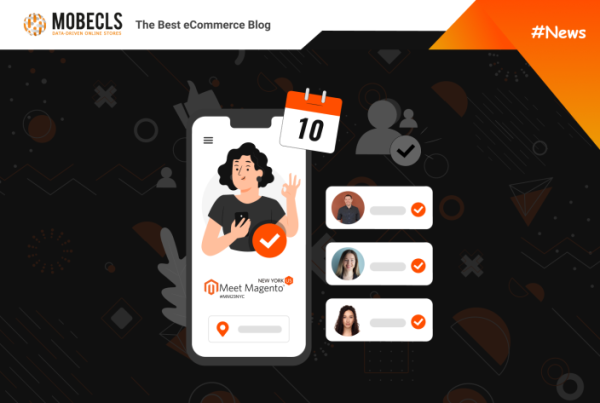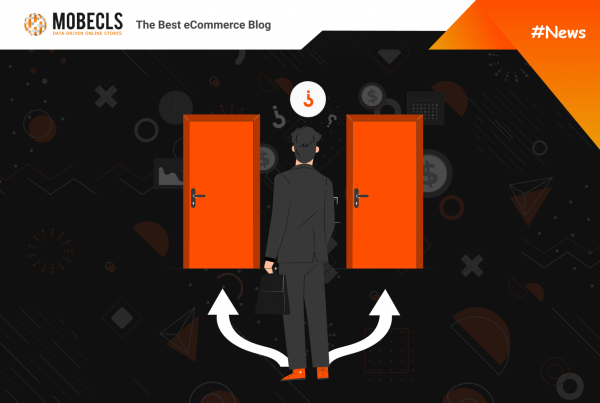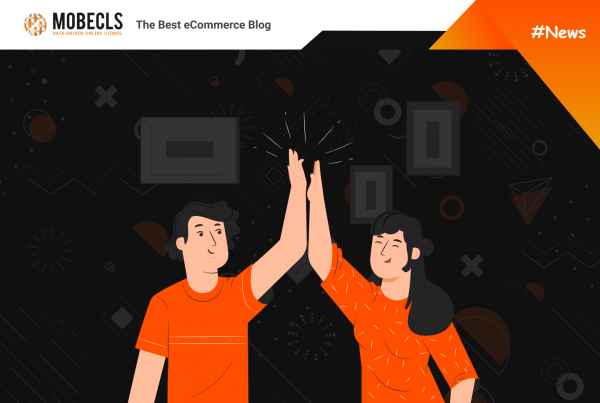 Guido Jansen is a cognitive psychologist focused on eCommerce. Guido helps companies to optimize customer experience using users data and knowledge of the latest online research. He has worked with T-Mobile, Heineken, eBay, and other large brands. He also attends international events as a speaker, such as Meet Magento, Magento Live, Emerce Engage.
Guido Jansen is a cognitive psychologist focused on eCommerce. Guido helps companies to optimize customer experience using users data and knowledge of the latest online research. He has worked with T-Mobile, Heineken, eBay, and other large brands. He also attends international events as a speaker, such as Meet Magento, Magento Live, Emerce Engage.
We’ve talked with Guido about early years of Magento Community, his experience of creating Dutchento and Meet Magento and essential mind shifts for business growth.
Joining Magento
Magento was my first entering to eCommerce but it wasn’t the first community that I built. Before I joined Magento I was building Joomla Dutch Community. I was working on Joomla with Roy Bogman and Jisse Reitsma. Back then Joomla was an extremely popular platform for websites but it lost all its popularity because it was a mess inside the company. When they were releasing a project it was considered as done. There were no further optimization and development. They were just doing nothing after their sites went live.
It wasn’t interesting for me as a psychologist. I prefer to make products better after they go live. That was the time when Roy Bogman brought me to Magento. I wanted to try myself in eCommerce business and not to let Magento languish like Joomla.
Magento First Years And Problems
Magento was ahead of the competition back then. Today there is a lot of eCommerce software similar to Magento. In 2008, we had only ZenCart, VirtueMart, OsCommerce.
Magento adoption rate was quite high back then, especially in Europe. Open source did great work in this process. European companies weren’t scared to buy Magento, as they were relying on themselves. Whether they would survive or not, they could use it. It was a safer option for them.
In America, the adoption rate wasn’t so high as Amerian companies were afraid of its open source nature. They thought that they couldn’t stew anyone if something went wrong as it’s an open source. They have just a different mindset.
The main Magento problem back then was the low speed of the platform. It took 30 secs to load the page. People thought that they can just download Magento and put it on shared servers. 100 people could be using the same server. They were just making an extremely heavy platform heavier and slower. Even today it still to be a heavy program. You need a special server environment for it. It’s definitely not a light program. But it’s not as slow as people may think.
The second problem was the lack of optimization. When people were installing Magento for the first time all the caсhes were off. Everything was off. They had to configure it to use it. But there was no proper documentation to do it.
The last main problem was the absence of community. Right now, there are lots of people you can talk to, dev docs, development agencies. Back then, we had nothing. It was a thing we had to work with.
Starting Dutchento and the First Meet Magento
After my first week in Magento, I started Dutchento. The first thing I decided to do is to organize an event as meetings in person are really important. I was pushing Roy and Yoav Kuttner to come to the Netherlands. It would be the first European Magento event. In mid-December 2008 they finally agreed to come. I had only six weeks to make the first Meet Magento.
I found a room for 100 people and it was the only option for us. At that moment I didn’t really know what the size of the Magento community was or how many people would attend. I thought it would be great to have even 15 attendants.
At that time Dutchento was already live. We had a blog and were writing different stuff there. We built mailing lists to promote our platform to engage more people and push them to buy tickets.
The main selling point was that the Magento founders were heading to Europe and it was the first European visit of Magento. Also, in the Netherlands, there were already five Magento agencies which joined the event. We sold all the tickets and had 100 people at the event.
We had one track and eight sessions. Roy kicked off the sessions and Yoav had a final session. Roy was telling about Magento optimization. We also had sessions on eCommerce in general. Point of sale system, for example.
Dutchento Mission
Most Meet Magento events are organized by local solution partners. But Dutchento is an independent organization, it’s not a solution partner. The only thing Dutchento is doing is organizing Magento events and Meetups, blogging. We don’t build Magento, we build the community.
We create things, we add value to the community. It doesn’t make sense for solution partners and Magento to do this.
For a long time, Magento was a sales-driven organization. They were thinking only about selling enterprise edition. They didn’t care about the open source and community. Magento was just pushing agencies to sell more and more products. If you don’t sell Magento, Magento doesn’t care about you. Strictly speaking. Solution partners care about selling projects, not about increasing the awareness of Magento.
Actually, If you are a solution partner, you already create awareness for Magento, you promote Magento. Commercially, it’s a tricky thing. In general, as a solution partner, you have benefits of better Magento brand.
That’s the aim of Meet Magento, Dutchento and Magento Association. We create a larger awareness of Magento. We try to streamline the benefits of the community by education and the events, but we do it in a more organized way. As a result, solution partners and Magento will gain more profit.
The Salt Of The Community
Volunteers are the concrete of every Magento event. We have a really nice layer of volunteers behind Dutchento. These people help us a lot before and during the events. Someone helps with rooms, others help speakers to be at the right time and other stuff.
Volunteering is about networking. If you organize a speaker program you’re in contact with speakers themselves. You pass time with them and It helps volunteers to get the idea of the ecosystem, to understand what happens inside Magento, what influencers are talking about. Developers can learn a lot from that. You meet new people, expand your network and become part of the community.
I want to help people to understand what they want from volunteering and how can I help them to achieve their goals. Like and every organization we have regular meetings where we discuss these questions. I try to make this process interesting for them.
We try to sign the responsibilities according to the skills and preferences: scheduling, websites, sponsors, logistics, etc. If someone says: “I want to do this” and this task is free. Ok, do it. Otherwise, we make a group decision and divide tasks among small working groups.
New Magento Poliсy
Magento is moving to a mid and upper market. Magento isn’t interesting in really small merchants. The competition is very high, there are a lot of other eCommerce platforms. You can use Woocomerce, Shopify, Shopware, PrestaShop. Ten years ago Magento was a perfect eCommerce platform for beginners. Right now, if you want to start your business you need at least 50K $. Magento is moving upwards, especially after the Adobe purchase.
It also has a significant impact on the number of merchants visiting the events. At Meet Magento Netherlands 2019 there were 320 merchants. Two years ago there were 500 of them. Market changes, people have more options. They are free to choose any eCommerce platform.
Magento Agencies Evolution
When we organized Meet Magento ten years ago, there were already 5 Magento development agencies. All of them were smaller than 10 people. Right now they are much bigger. Back then they were doing projects for 10K but right now, none of them will be doing projects that cost less than 10K.
Both Magento and all the agencies are moving to more expensive and professional projects. It’s a natural thing. People have time to adapt as this transition is slow enough. Of course, there will be agencies who won’t adapt, who won’t invest their money in certifications and training.
Development agencies had really hard times to adapt to Magento 2. Those who didn’t adapt to Magento 2, dropped the platform and started to work with Shopify and PrestaShop. It’s fine, that’s all about the market, not about the ecosystem.
Merchants’ Mindshift
Earlier merchants cared only about the sales. The time is passing, they grow, their companies become larger. The decision-making process becomes slower. 10K projects differ a lot from 500k projects. These are two different worlds. Big merchants don’t care about the front end. The most important thing for them is the harmony of the whole mechanism. Today, an online store is a complex system that includes content, shipping, order processing, accounting, etc.
If something goes wrong with the front end it won’t be critical. You’ll just lose a bit of conversion. But if something goes wrong with the back end, the whole system will break down. It will be tantamount to clinical death.
Ecosystem. That’s the most important thing for merchants.
B2B Problem
Gary Vaynerchuk said that B2B is easier than B2C. It’s not easy but easier. At least, you know who your clients are. Nevertheless, there is a serious problem in B2B sector. Everyone doesn’t care about user experience. They can even have no website, use fax or other physical things. Some kind of Stone Age. It happens due to the nature of the business. In B2B you make purchases not through an online store but a contract. People have to buy from you because you’re a supplier. B2B sector should understand that we’re living in a digital era. A person who’s buying stuff on their websites is also a consumer. That’s the most fascinating thing in B2B sector: to understand how to optimize their web sites.
Growth Hacking Barrier
Firstly, a company needs a cultural shift to start growth hacking.
When we get an education, go to school, we’re basically taught that there’s one right answer. If you do Maths, History, Science, Geography. There’s a lot of things in education that has one answer. In business, there’s no general answer. There isn’t a universal way of doing something. Insane amount of variables.
When you go to a manager you’re expected to give an answer. You don’t want to say: “I don’t know”. It doesn’t feel good because you think that your manager will consider you as a douchebag. I said the phrase “I don’t know” a lot of times during my life.
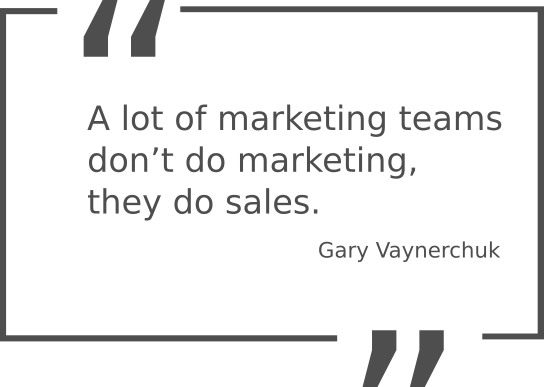
It’s like with marketing campaigns. There’re a lot of campaigns going out and marketers think they will impact the customers but they actually don’t know. You need to test a lot of things. It’s scary to test things. Testing things means you’re facing things you don’t know. There’s no need for testing something you already know. That’s a mind shift. As a kid, before you go to school you also have this mindset.
If you don’t test, you don’t know it exactly. Basically, you’re already testing but you don’t evaluate it. You may say you do, but you don’t. If you don’t track the numbers then you’ll never know. Of course, there’re a lot of things you cannot measure.
Gary Vaynerchuk said: “A lot of marketing teams don’t do marketing, they do sales”. That’s true. But in this case, you can measure what you are doing. If you don’t do it, you might be killing your brand without knowing it. If you do it in a structured way and trying to learn something from your customers what works and what doesn’t, it makes your company great.
Growth Hacking Team
First of all, you need an analyst who will collect user data and pinpoint main user problems, including user experience. Growth hacking team needs a psychologist. It’s essential to understand what motivates people, how many information they can store in their heads and what attracts their attention on the web page. You will also need a front end developer and project manager.
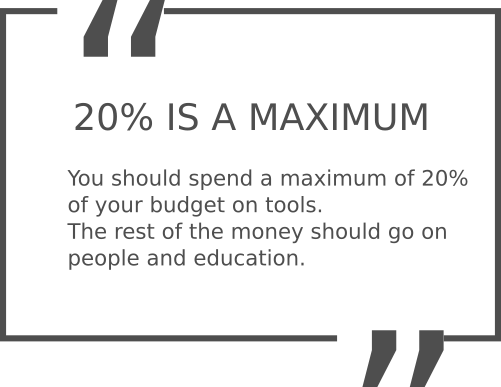
To conduct a successful experiment you should know what tools to use. It can be Google Analytics, convert.com or effectiveexperiments.com.
Convert.com provide you with capability measures of your website its similar to Google Optimize. Effectiveexperiments.com guides you through descent experiment, measure the KPI, allows you to create a searchable database for all the experiments you’ve done. You create a knowledge base of your customer.
You should spend a maximum of 20% of your budget on tools. The rest of the money should go on people and education.

